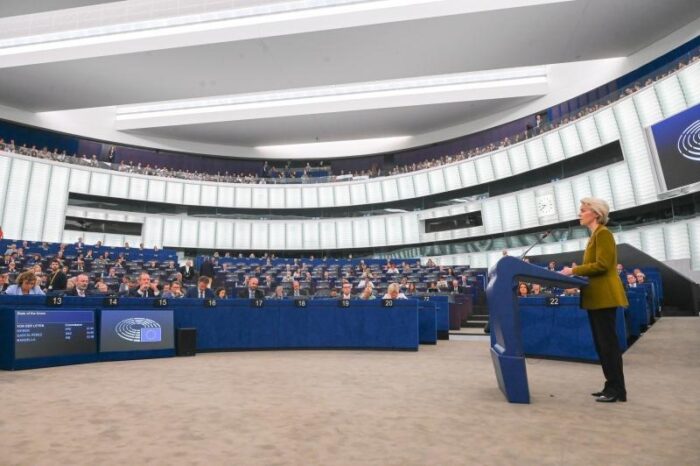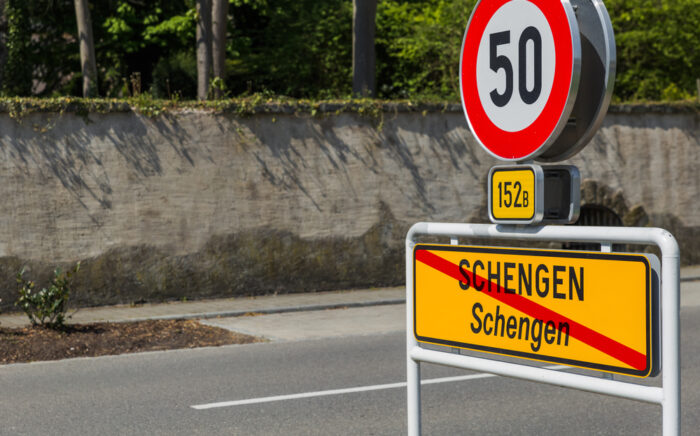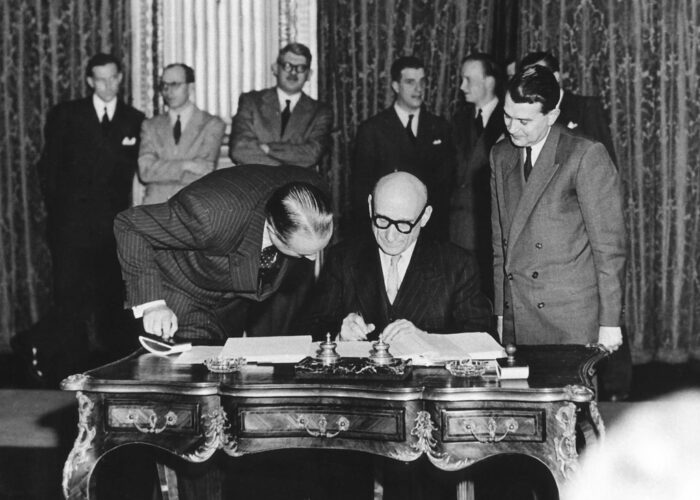The Progressive Post
Hungarians hide the pain

Today, the most popular Hungarian internationally is a 78-year-old meme star called András Arató, more widely known as ‘Hide the Pain Harold’. His only real competitor is the 80-year-old inventor of the famous Rubik’s Cube, Ernő Rubik. Sadly, however, Hungary’s relationship with the community of the other 26 EU member states is dominated by a completely different representative of the ‘homo ludens’: Viktor Orbán, the man once casually called ‘dictator’ by the then president of the European Commission, Jean-Claude Juncker. In contemporary EU discourse, Orbán is somewhere between a black sheep and the antichrist. Thanks to him, the country is perceived as a nuisance by some, and as a threat by others.
For Hungary, it is not the first time that a negative image has taken hold. For much of the 10th century, at least until the battle of Augsburg (955), West Europeans were often terrified by the expeditions of the Hungarians. In those times, before the establishment of the Christian kingdom by Stephen I., unpaid imports delivered by skilful horse-riding warriors represented a significant part of Hungary’s business model. Eventually, the patience of the Westerners ran out, and the Hungarians were forced to convert to the rules-based order of the time.
In the eyes of many in the West, the prospect of the second Hungarian presidency of the EU Council has been approaching with comparable horror. In 2023, some members of the European Parliament scrambled to find a way to somehow skip Hungary with the rotating presidency. Then, in early 2024, when Charles Michel started to contemplate his future, he was asked to withdraw from switching to the European Parliament because this would have triggered a realistic possibility of Viktor Orbán becoming head of the European Council, even if provisionally.
When speaking about the EU, Orbán keeps pushing the narrative that, in reality, he defends the EU’s original construct – and that the threat to integration comes from those who insist on adding unnecessary or harmful elements, like gender ideology or climate policy. While he is now the longest-serving EU prime minister, he never includes himself in the EU elites but pretends to represent the people, who are culturally conservative by definition. Talking heads of Fidesz never miss an opportunity to stress the need to return to Europe’s Christian roots. In 2019, Orbán and Fidesz voted for Ursula von der Leyen, but now they consider her a failure (for giving in to green, gender, rule of law and war ‘ideologies’) and want a complete change at the level of EU top officials. His dream is a Europe led by the Melonis and the Le Pens.
But will the Hungarian presidency of the Council really be so scary? In fact, when Hungary (meaning Orbán’s government) held the presidency last time, it demonstrated a good capacity to organise meetings and behave as an honest broker. The presidency in the first half of 2011 prioritised the improvement of economic governance, as well as some specific Central European issues like Roma integration, demographic decline and the accession of Croatia. Although most ministerial meetings took place outside Budapest, in a royal palace at nearby Gödöllő, the sentiment was positive. All this happened before Orbán openly declared that the regime he was building was ‘illiberal’.
For a decade now, the discourse on Hungary has revolved around the questions of the rule of law and the country’s industrial-scale corruption. These themes have dominated in recent months as well. Hence, very little became known about the government’s intentions regarding the content of the Hungarian Council presidency. Shortly before the European Parliament elections, Orbán was interviewed by the French Le Point and the Italian Il Giornale (strictly right-wing media) and made it clear that during its Council presidency, the Hungarian government intends to address topics like competitiveness, migration, defence, demography and the Western Balkans. Obviously, one must recognise a certain degree of continuity and constructiveness here, as most of these are shared concerns of the Union. The problem is not the list in itself but how the right-wing government of Orbán interprets them.
The competitiveness debate has been given a framing by Mario Draghi, but many did not pay attention when the former Italian prime minister warned against returning to the old and ill-focused interpretation of the concept. Orbán’s party and his government most likely belong to the group Draghi had in mind with his warning. They tended to oppose EU social initiatives (the directive on adequate minimum wages for example) with reference to competitiveness, and now they are ready to parrot the eurosceptic trope that suggests climate policy is a threat to economic competitiveness. Beware of the epic struggle to come! Defence appears to be one of the few issues where Orbán’s position is aligned with the European mainstream – almost. Ever since the issue was relaunched by Juncker, Orbán has reacted positively to the idea of ever-closer EU cooperation on defence. Today, however, there is a specific spin on this: the Hungarian government’s anti-US sentiment. Make no mistake, war and peace was the central theme of the recent Fidesz election campaign, and Fidesz will continue to make its opinion heard, especially if the Republicans retake the White House in November.
On migration, Orbán has been notorious since 2015 for exploiting the large influx of refugees in Europe for his own domestic politics. However, the EU approach has shifted greatly since the experiment with a refugee distribution quota. The recently adopted Migration Pact favours the practice of outsourcing, but it is not sufficiently right-wing for Orbán, who would like to scrap what was recently agreed and promote something even more reactionary.
Opposing immigration (especially from outside Europe) and promoting a debate on demography is a recipe for something divisive, if not explosive. Yet Orbán is returning to his 2011 agenda on this. The dilemma here is that the issue indeed deserves a constructive discussion, as it is one of the greatest imbalances of the single market (as has also been picked up by Enrico Letta in his recent report). But just like in 2011, the issue can be downplayed or even sidelined as being a matter of individual decision and as a competence for member states. One might well ask why it is that Orbán, who otherwise insists on subsidiarity and adheres to the philosophy of a ‘Europe of nations’, wants to bring this matter to the EU table.
On enlargement, which has been covered in the current European Commission by a Hungarian commissioner who is not a favourite of the European Parliament, Orbán is again partly right because more than two decades after the famous Thessaloniki promises, the integration of the Western Balkans needs to become a genuine and dynamic process. The problem with Orbán’s approach is that he always teams up with those who fail to take the requirements of the rule of law seriously and who collaborate with him in shady business deals – from the president of Serbia, Aleksandar Vučić, to the former Macedonian prime minister Nikola Gruevski.
In reality, the question is whether it matters at all what Orbán thinks or wants on these topics. Usually, less is expected from EU Council presidencies that fall in the second half of the year as there is less time due to the summer and Christmas holiday periods. The expectations are even lower as we are now in a transition period in the EU institutions. Time will fly, and observers will pay much more attention to the hearings of commissioner designates than to ministerial conferences in Budapest’s Castle Bazaar and Royal Gardens.
EU watchers and fellow Europeans should nevertheless be aware that a very large proportion of Hungarians are disturbed by the fact that their government has been captured by a rogue right-wing syndicate focused on family business, which has resulted in the breakdown of relations with the EU and even the suspension of EU financial transfers. New evidence for this latent sentiment is that in the recent European Parliament election, one-quarter of the Hungarian electorate was ready to vote for a brand-new populist party just to regain some hope for change – a reminder of the pain Hungarians have been hiding.
In normal conditions, an EU Council presidency would be a great opportunity to address common challenges of the Union and to promote the country’s image at the same time. Now, however, people find relief in the knowledge that the presidency’s powers are limited, and that their government will not be able to do much more than change the elevator music in the Justus Lipsius building.
Photo Credits: Shutterstock/Alexandros Michailidis&StockLite




